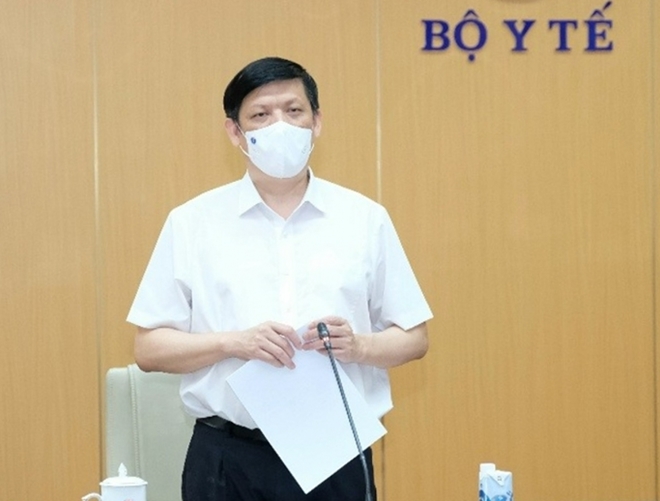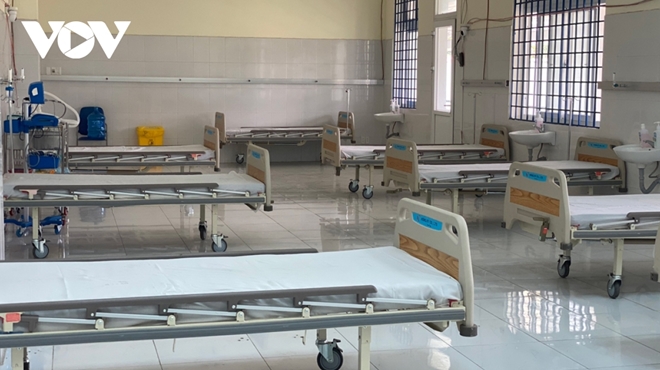New anti-pandemic plan underway as southern localities take brunt of COVID-19 wave
 |
|
Minister of Health Nguyen Thanh Long at the meeting |
In his remarks during a regular meeting on nationwide COVID-19 prevention and control efforts, Minister Long warned of the growing number of new local infections and fatalities regarding COVID-19 in Ho Chi Minh City. The southern city, currently the nation’s largest hotspot for the epidemic, along with eastern and southwestern provinces, is seeing the pandemic evolve in a very complicated manner.
According to the Minister of Health, the previous outbreaks lasted for only up to eight weeks, but the ongoing wave may last longer due to the Delta variant spreading rapidly, with the infection rate up to three times higher than previous outbreaks.
“Due to the adhesion speed of the Delta mutant to host cells, the ability to multiply rapidly in large numbers in cells leads to the destruction of cells and the spread of pathogens to the surrounding environment in a short time. The current infection cycle is only two days, not five days like before," Minister Long analysed.
New anti-pandemic strategy
The Ministry of Health has made changes to its anti-pandemic strategy regarding isolation, testing, and treatment to fall in line with the actual pandemic situation.
Minister Long went on to say that shortening the isolation period, despite the potential risks, can be accepted as a low level of danger. Simultaneously, F1 isolation at home can be applied according to the guidance of the Ministry of Health, providing relevant criteria are met during its pilot run.
Regarding COVID-19 treatment, the Ministry of Health has set up treatment areas for mild and asymptomatic patients, while those with symptoms will be transferred to medical facilities for treatment. In terms of severe and critically-ill patients, they will be sent to general hospitals or field hospitals with intensive care units (ICU).
 |
|
More hospital beds are provided to serve COVID-19 treatment |
If asymptomatic patients have twice tested negative for SARS-CoV-2 or twice tested positive, but their virus concentration index is low, they can be discharged from hospital because the possibility of community transmission will be virtually nonexistent. However, these cases will still be subject to medical observation and supervision at places of residence for a 14-day period.
The Ministry of Health has also noted that more than 400 relapse cases following hospital discharge had led to no cases of community transmission. Therefore, relapse cases in the community must continue undergoing medical monitoring.
"These changes reduce the length of hospital stay for asymptomatic and mild patients in order to focus on treating severe patients at treatment facilities,” Minister Long added.

